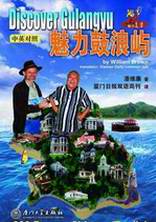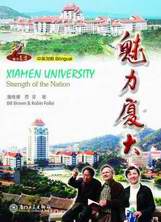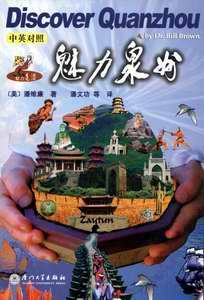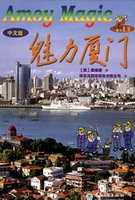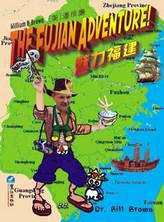![]() Click
to
Access
Click
to
Access
AMOY MAGIC SITE from
OUTSIDE China
![]() Click
to Access Amoy
Magic Site from
Click
to Access Amoy
Magic Site from
INSIDE
China ![]()
TRAVEL
LINKS
![]() Xiamen
Xiamen
![]() Gulangyu
Gulangyu
![]() Jimei
Jimei
![]() Tong'an
Tong'an
![]() Jinmen
Jinmen
![]() Zhangzhou
Zhangzhou
![]() Quanzhou
Quanzhou
![]() Wuyi
Wuyi
![]() #1Fujian
Sites!
#1Fujian
Sites!
![]() Fujian
Foto Album
Fujian
Foto Album
![]() Books
on Fujian
Books
on Fujian
![]() Readers'Letters
Readers'Letters
![]() Ningde
Ningde
![]() Zhouning
Zhouning
![]() Longyan
Longyan
![]() Sanming
Sanming
![]() Putian
Putian
![]() Bridges
Bridges
![]() Travel
Info,
Travel
Info,
![]() Hakka
Roundhouses
Hakka
Roundhouses
![]() Travel
Agents
Travel
Agents
MISC. LINKS
![]() Amoy
People!
Amoy
People! ![]()
![]() Darwin
Driving
Darwin
Driving ![]()
![]() Amoy
Tigers
Amoy
Tigers
![]() Chinese
Inventions
Chinese
Inventions
![]() Tibet
in 80 Days
Tibet
in 80 Days![]()
![]() Amoy
Vampires!
Amoy
Vampires!
![]() Dethroned!
Dethroned!
![]()
![]() Misc.Writings
Misc.Writings
![]() Latest
News
Latest
News
![]() Lord
of Opium
Lord
of Opium
![]() Back
to Main Page
Back
to Main Page
Copyright 2001-7 by Sue Brown & Dr.
Bill ![]() Order
Books
Order
Books
Note:
Please click thumbnails
for larger photos!!
![]() Amoy
Hill's Photos
Amoy
Hill's Photos![]()
![]() AmoyMission-1893
AmoyMission-1893
NARRATIVE OF EXPLORATORY VISIT TO CONSULAR CITIES OF CHINA
(1844, 1845, 1846)
BY
REV. GEORGE SMITH, 1857 Scanned
by Dr. Bill Brown
![]() Chap
25 Departure to Amoy
Chap
25 Departure to Amoy ![]() Chap
26 Daily Occurrences at Amoy
Chap
26 Daily Occurrences at Amoy
![]() Chap
27 New Year Festivities
Chap
27 New Year Festivities ![]() Chap
28 Visit Amoy High Mandarins
Chap
28 Visit Amoy High Mandarins
![]() Chap
29 Prevalance of Opium Smoking
Chap
29 Prevalance of Opium Smoking ![]() Chap
30 Female Infanticide
Chap
30 Female Infanticide
![]() Chap
31 Daily Incidents at Amoy Cont'd
Chap
31 Daily Incidents at Amoy Cont'd ![]() Chap
32 Mandarins Entertain Missionaries
Chap
32 Mandarins Entertain Missionaries
![]() Chap
33 General Description of Amoy
Chap
33 General Description of Amoy ![]() Chap
34 Depart Amoy for Canton; Opium Problem
Chap
34 Depart Amoy for Canton; Opium Problem
CHAPTER XXIX. FACTS ILLUSTRATIVE OF THE PREVALENCE
AND EFFECTS OF OPIUM-SMOKING.
Visit to Opium-Dens-Confessionn of Opium-Smokers-Moral and Physical Effects
of Opium-Local System of Smuggling, and Mode of Retail-Detailed Testimony
of ten consecutive Cases of Opium-Smokers, taken from their own Lips.
DURING my stay at Amoy I made many inquiries respecting the prevalence
and effects of opium-smoking, and often visited, with a missionary friend,
some of the shops in which opium was sold.
The first opium-house which we entered was situated close to the entrance
to the taou-tai's palace. Four or five rooms, in different parts of a
square court, were occupied by men stretched out on a rude kind of couch,
on which lay a head-pillow, with lamps, pipes, and other apparatus for
smoking opium. In one part of the principal room the proprietor stood,
with delicate steel-yards, weighing out the prepared drug, which was of
a dark, thick, semi-fluid consistency. A little company of opium-smokers,
who had come hither to indulge in the expensive fumes, or to feast their
eyes with the sight of that which increasing poverty had placed beyond
their reach, soon gathered around us, and entered into conversation. Lim-pai,
who accompanied us-himself a reclaimed opium-smoker-earnestly took part
in the conversation with his countrymen. They formed a motley group of
sallow, sunken cheeks, and glassy, watery eyes, as, with idiotic look
and vacant laugh, they readily volunteered items of information, and described
the process of their own degradation. There was to be seen the youth,
who, just emerging from boyhood, had only commenced the practice a little
time before, and was now hastening to a premature old age. There was the
man of middle age, who, for half his life a victim of this pernicious
indulgence, was bearing with him to an early grave the wreck of his worn-out
constitution. There was again the more elderly man, whose iron strength
of frame could better ward off the slow but certain advances of decrepitude,
but whose bloated cheek and vacant stare told of the struggle that was
raging within. There was again the rarely-seen spectacle of old age; and
the man of sixty lived yet to tell of forty years consumed in the seductions
of this vice. They all assented to the evils and sufferings of their course,
and professed a desire to be freed from its power. They all complained
of loss of appetite, of the agonizing cravings of the early morning, of
prostration of strength, and of increasing feebleness, but said that they
could not gain firmness of resolution to overcome the habit. They all
stated its intoxicating effects to be worse than those of drunkenness,
and described the extreme dizziness and vomiting which ensued, so as to
incapacitate them for exertion. The oldest man among their number, with
a strange inconsistency and candor, expatiated on the misery of his course.
For three years he said he had abandoned the indulgence, at the period
of Commissioner Lin's menacing edicts and compulsory prohibition of opium.
At the conclusion of the British war, the opium-ships came unmolested
to Amoy: he had opened an opium-shop for gain; and soon he himself fell
a victim. He enlarged on the evils of opium-smoking, which he asserted
to be six: l. Loss of appetite. 2. Loss of strength. 3. Loss of money.
4. Loss of time. 5. Loss of longevity. 6. Loss of virtue, leading to profligacy
and gambling. He then spoke of the insidious approaches of temptation,
similar to those of the drunkard's career. A man was sick, or had a cold:
a friend recommended opium, and he fell into the snare. Or, again, some
acquaintance would meet him, and press him, by urgent solicitations, to
accompany him to an opium-house. At first he would refuse to join in smoking;
by degrees, however, his friends became cheerful; their society was pleasant;
his scruples were derided; his objections speedily vanished; he partook
of the luxury; it soon became essential to his daily life; and he found
himself at length unable to overcome its allurements.
Some of the Chinese present requested us to give them medicine to cure
them of the habit; but my companion told them that the only medicine necessary
was a firm heart, which God could give them; and pointed them to Lim-pai,
as an instance of the power of a virtuous resolution. The latter again
entered on the subject, earnestly testifying his increased happiness and
comfort since he abandoned the vice half a year ago. The oldest opium-smoker
replied by excusing himself of all moral guilt in the matter, and said
that it was "heaven's decree" that he should be overcome by
the vice, which he therefore could not escape. We left this establishment
amid many inquiries for medicine, in which the proprietor of the house
joined. He appeared not to be in the least degree displeased at the freedom
of our remarks on an indulgence which brought him his means of livelihood.
On hearing that I was an English missionary, they exposed the inconsistency
of my rebuking their habit of smoking opium, while my countrymen brought
them the means of indulging it. Most of them seemed to labor under the
delusion that the missionaries were all Americans, and the opium-smugglers
were all Englishmen-a mistake of which we of course took every means of
disabusing their minds.
I subsequently visited about thirty other opium-shops in different parts
of the city. One of these opium-dens was a narrow, dark, and filthy bole,
almost unfit for a human being to enter, and appropriately joining a coffin-maker's
shop. From the people we gained various particulars as to the nature and
extent of the opium traffic. The large native wholesale dealers were in
the habit of strongly manning and arming a boat, in which they proceeded
outside the boundaries of the port to the Six Islands. There the foreign
opium-vessels lying at anchor were similarly armed and prepared for resistance,
in the event of the Chinese authorities attempting to capture them. The
native boats returned with the chests of opium to Amoy, and might be seen,
with some European flag flying aloft, moving swiftly through the harbor,
with sails set, and all the crew plying their oars. They always formed
too strong a force to encourage the hope of successful pursuit, either
by the pirates or by the mandarins. The wholesale native smugglers then
retail the opium-balls separately to the retail-dealers and proprietors
of opium-shops. No secrecy is observed respecting this article of universal
traffic. I have seen three consecutive houses kept by opium-venders. The
people say that there are nearly a thousand such establishments in Amoy.
Public notices on the corners of streets frequently invited the attention
of passersby to opium "three winters old" sold in the opposite
house. To the better class of these shops the servants of rich men might
be seen resorting in order to purchase the prepared drug, and to carry
it in little boxes, or, if the quantity were moderate, on little bamboo
leaves, to their master, for smoking at his own house. They all asserted
that they paid no bribes to the mandarins, saying that these also smoked
opium, and, therefore, were prevented by shame from interfering with the
people. They assented to the probability of bribes being paid to the native
authorities by the large wholesale purchasers, who go outside the harbor
to buy opium from the foreign ships. Among other proofs of the full cognizance
of the local authorities, as well as of the very general prevalence of
opium-smoking, may be mentioned the fact of persons being met with in
almost every street, who gain their entire livelihood by manufacturing
the bowls of opium-pipes, which they publicly expose for sale in every
direction.
Ten Opium Smokers' Stories
Wishing to obtain more accurate information and data on the physical and
moral effects of opium than were to be gathered from a general recollection
of the cases which I witnessed, I was afterward accompanied by Mr. Pohlman,
who kindly acted as interpreter, to ten
opium-houses, in order that I might possess ten consecutive cases of opium-smokers,
and gain positive testimony from their own confessions
on the subject. We generally took the first man in each house whom we
beheld in the act of inhaling the fumes; and the questions proposed were
generally answered by the individual without any restraint or unwillingness.
Sometimes his companions who might be present spoke also in confirmation
of his statements. The simple evidence is recorded without lengthened
comment, to enable the reader to form his own unbiased opinion concerning
the effects of opium. The writer has no object in view but truth, and
a desire that the real state of the case, and the real effects of the
system should be known, whatever the result may be, whether tending to
augment or to moderate the general current of the feelings and views of
the benevolent portion of the public. He would merely premise, that the
recorded cases are those of poor men frequenting houses of the lowest
description, and not generally possessing the means of a very excessive
indulgence; and that the rich, who possess the power of gratifying to
the full their propensity to opium, do not smoke the chug in these common
establishments, but consume it in secrecy at their own homes,
No. 1. Was that of a man thirty-nine years old, a mate
on board a trading-junk from Teen-sing. He had smoked four years. He professed
to have commenced the practice from a disease in the heart, and to have
found it beneficial as a relief from the pain. During the first two years
he gradual1y increased the dose. During the last two years he smoked daily
ten fun, or candareens, i. e., one tseen, or mace (equivalent to sixty
grains, or one drachm); one half in the morning, and the other half in
the evening. The indulgence cost him daily 190 cash (about eightpence)
at the present rate of consumption. He had a wife and five children. Early
in the morning, the craving desire for opium made him feel ill till he
took his accustomed quantity. He testified to the diminution of his appetite
and strength since he began the habit. He was apparently a man of very
strong constitution and robust frame, and had hitherto suffered but little
from the effects, although his countenance wore a bloated appearance.
No.2. Was forty-two years old, and had been fifteen years
an opium-smoker. He formerly smoked a mace, but now, from poverty, could
only afford to smoke three candareens a-day. He was a literary teacher
by profession, but was in reduced circumstances. He complained of decay
of strength and loss of appetite. He professed to be gradually leaving
off opium, under the compulsion of poverty; but pain in the stomach furnished
him with an excuse for taking an extra dose this afternoon. His hollow
cheek and sallow countenance rendered him a wretched and pitiable-looking
object.
No.3. Was twenty-five years old, and had smoked opium
three years. He began the practice with two or three candareens daily,
but, having gradually increased the dose, now smoked a mace. He complained
of loss of appetite and decay of strength. He was formerly much stronger.
He was the headman of a company of coolies. Out of between 200 or 300
cash, his daily wages, he spent 190 cash on opium. His idiotic look and
sunken eye made him appear a wretched object, overtaken in early youth
by the decrepitude and infirmities of old age. The bystanders gave him
the character of being exceedingly depraved, even in the Chinese estimate
of morality.
No.4. Was fifty-one years old, and had smoked opium fifteen
years. He was a sailor on board a trading-junk. He had been smoking more
than a mace a-day. He said that his appetite and strength were greatly
diminished. He was formerly addicted to drunkenness; but experienced the
effects of opium to be much more destructive. Opium often made him ill.
He often felt the desire to vomit, without the power of doing so. By the
advice, and with the help of the keeper of the opium-house, he had been
trying to reform, and for eight days had not smoked his usual dose. He
was now eating a medicinal compound to cure the craving, and to enable
him to break off the habit by degrees. This medicine was made of sugar,
ginseng-root, and some opium-soot; sugar, however, forming the principal
ingredient. He confessed that he still smoked a little at night, and appeared
so wedded to the vice, as to be almost an involuntary instrument in hastening
on his premature destruction.
No.5. Was a deaf man, unable to catch a sound, and suspicious
withal: a wretched object, of about forty years of age, in the greatest
destitution, and with squalid appearance. He came to the shop to buy two
candareens of opium to smoke at his own house. The by-standers said that
a person commencing to smoke opium would be intoxicated by two candareens,
but that a much larger quantity is gradually required to produce this
effect.
No.6. Was fifty years old, and had smoked opium fourteen
years. He smoked a mace daily. He was engaged in smoking over again the
soot of opium, scraped out from the bowl of his pipe. He said that his
appetite and strength were greatly diminished. He was formerly an opium
house keeper, but failed in business. He now hired the house in which
we were. In this wretched hovel he continued, on a small scale, his former
business. His sons, who were farmers in the country, contributed to his
support.
No.7. Was forty-three years old, and had smoked opium
thirteen years. He was the proprietor of the establishment, being employed
also as a secretary to some mandarin. He had smoked from seven candareens
to a mace daily. He spoke of his loss of appetite and strength. He stated
that he was desirous of reforming, and anxious to know the means of reformation.
He had twice partially abandoned the indulgence, but his boon companions
inveigled him back to the vice. He acknowledged that he was in better
health during the period of his abstinence, and stated his conviction
that, if he could even now abandon the seduction, he would regain much
of his former strength. Previously to his former reformations he had eaten
a medicinal preparation, consisting of two candareens of opium-soot mixed
with arrack, sugar, and other ingredients, amounting to eight kinds in
all. He assented to the folly and evil of his course. A partner in one
of the opium establishments, however, as he was weighing out the drug
to his customers, once retorted to the remonstrances of my companion,
by asking, "Why, then, do the foreign ships bring us the opium? Go,
rather, and prevail on your country-men not to bring us opium."
No.8. Was thirty years old, and had smoked, for two years,
three candareens a-day; one half in the morning, and the other half in
the evening. He complained of loss of appetite and diminution of strength.
He said that he desired to reform, but was unable to accomplish his desire,
as abstinence, even for a day or two, produced great distress and pain
in his limbs. He was a maker of bamboo chairs. He had a wife, but no children.
(The by-standers all testified, on this and other occasions, that opium-smokers
have few children.) His cheeks had a sallow, sunken appearance. He said
that he was formerly stout and robust, and that he had lost one half of
his bodily weight. He persisted in this last statement amid the expression
of our incredulity.
No.9. Was a boatman, fifty years old, and had smoked
three candareens a day for above ten years. He complained of diminished
appetite and strength, and had a vacant look and bloated countenance.
No. 10. Was thirty-seven years old, and had smoked opium
for thirteen years. His usual dose was one mace a day. He was a shoemaker,
and had a wife and three children. He professed to be desirous of reforming,
and took from his pocket a mixture of opium-soot and salt to cure the
craving. Two days ago, having no money, he took no opium; on the previous
day he took half a dose: on this day he had taken no opium, but was in
great suffering from nervous prostration. He said that he was formerly
fat, healthy, and good looking. He had now a dreadfully bloated appearance,
was very weak, and unable to eat his regular food. He wanted to know if
there was any thing that could enable him to reform. He replied to the
exhortations of my friend by shaking his head, and pointing to his breast
and hard breathing. He proceeded to describe in detail, with accommodated
gestures, the manner in which, when making shoes at his bench, if he had
not the usual dose of opium, he fell away into a fainting fit. He stated
that he was in the habit of propping up his strength by chewing a little
of the mixture. It was affecting to listen to the description of his sufferings,
and to behold the poor victim raising himself to a high degree of excitement,
as he was describing the progress of his own misery. He said that, without
the usual dose of opium, he could not retain his food without vomiting.
He earned 260 cash a day, out of which he spent from 180 to 220 cash in
opium. His youngest son was born six years ago, since which time he had
had no offspring. He begged importunately for our help in supplying him
with a remedy; and listened, "vacantly assenting, as Mr. Pohlman
told him to pray for help, in breaking off his vice, to the Almighty.
He said that three days ago he had worshiped the idol of Shang-te (literally,
"Almighty," the name of one of their deities), on the birthday
of the god. He again proceeded to imitate, by gestures, the panting of
the craving state, and complained of being in the midst of temptations
to the indulgence. He gladly assented to Mr. Pohlman's proposal to come
for five days to our house, where he should have his rice gratuitously
supplied to him, that he might be placed beyond the influence of temptation,
and be enabled to abstain from the indulgence. He seemed to be very earnest
in the expression of his gratitude. Early the next morning he came to
our house, professing his determination to practice total abstinence,
and apparently resolved on breaking off the vice. He conducted himself
very well for several hours, but toward the close of the day became evidently
uncomfortable and uneasy. He took his meals with the Chinese domestics
in a room below, and then returned to the missionary's study. Here he
soon after showed, by his conversation, the struggle with temptation that
was pending within. He invented some excuses for going into the street;
but as he had no money, his pretext for temporarily absenting himself
from the house would not suffice his purpose. He now spoke of his family
having no rice to eat, as he was not at home to earn any money for them.
He asked for a few cash to buy a meal for them, which request was firmly
refused, as we believed him to be merely seeking the means of satisfying
an intense desire for opium, which he found himself too weak in purpose
to resist. He continued some time longer with us in evident pain and suffering,
and at last, overcome by the agony of the craving state, disappeared into
the streets.
The initials
L. M. S. = London Missionary Society.
A. B. C. F. M. = American Board for Conduction Foreign Missions
A. B. B. F. M. = American Baptist Board for Conducting Foreign Missions.
Am. Ep. Ch. = American Episcopal Church
A. G. A. B. = American General Assembly¡¯s Board
C. M. S. = Church (of England) Missionary Society
E. B. M. S. = English Baptist Missionary Society.
A Narrative of an Exploratory Visit to each of the Consular Cities of
China, and to the Islands of Hong Kong and Chusan, in Behalf of the Church
Missionary Society, in the years 1844, 1845, 1846, by the Rev. George
Smith, M.A., of Magdalen Hall, Oxford, and Late Missionary in China
New York, Harper and Brothers Publishers, 52 Cliff Street, 1847
Scanned by Dr.
Bill Brown Xiamen University MBA Center
Please
Help the "The Amoy Mission Project!"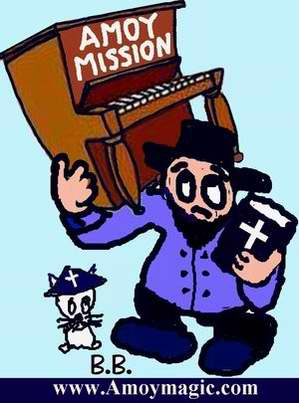 Please
share any relevant biographical material and photos for the website and
upcoming book. All text and photos will remain your property, and
photos will be imprinted to prevent unauthorized use.
Please
share any relevant biographical material and photos for the website and
upcoming book. All text and photos will remain your property, and
photos will be imprinted to prevent unauthorized use.
E-mail: amoybill@gmail.com
Snail Mail: Dr. William Brown
Box 1288 Xiamen University, Xiamen, Fujian PRC 361005
![]() Favorite
Fujian Sites
Favorite
Fujian Sites ![]() Fujian
Foto Album
Fujian
Foto Album ![]() Xiamen
Xiamen
![]() Gulangyu
Gulangyu
![]() Fujian
Guides
Fujian
Guides ![]() Quanzhou
Quanzhou
![]() Zhangzhou
Zhangzhou
![]() Longyan
Longyan
![]() Wuyi
Mtn
Wuyi
Mtn ![]() Ningde
Ningde
![]() Putian
Putian
![]() Sanming
Sanming
![]() Zhouning
Zhouning
![]() Taimu
Mtn.
Taimu
Mtn. ![]() Roundhouses
Roundhouses
![]() Bridges
Bridges
![]() Jiangxi
Jiangxi
![]() Guilin
Guilin
![]() Order
Books
Order
Books![]() Readers'
Letters New: Amoy
Vampires! Google
Search
Readers'
Letters New: Amoy
Vampires! Google
Search
Last Updated: October 2007
AMOY
MISSION LINKS
![]()
![]() A.M.
Main Menu
A.M.
Main Menu
![]() RCA
Miss'ry List
RCA
Miss'ry List
![]() AmoyMission-1877
AmoyMission-1877
![]() AmoyMission-1893
AmoyMission-1893
![]() Abeel,
David
Abeel,
David
![]() Beltman
Beltman
![]() Boot
Family
Boot
Family
![]() Broekema,
Ruth
Broekema,
Ruth
![]() Bruce,
Elizabeth
Bruce,
Elizabeth
![]() Burns,
Wm.
Burns,
Wm.
![]() Caldwells
Caldwells
![]() DePree
DePree
![]() Develder,
Wally
Develder,
Wally
![]() Wally's
Memoirs!
Wally's
Memoirs!
![]() Douglas,
Carstairs
Douglas,
Carstairs
![]() Doty,
Elihu
Doty,
Elihu
![]() Duryea,
Wm. Rankin
Duryea,
Wm. Rankin
![]() Esther,Joe
& Marion
Esther,Joe
& Marion
![]() Green,
Katherine
Green,
Katherine
![]() Gutzlaff,
Karl
Gutzlaff,
Karl
![]() Hills,Jack
& Joann
Hills,Jack
& Joann
. ![]() Hill's
Photos.80+
Hill's
Photos.80+
..![]() Keith
H.
Keith
H.![]() Homeschool
Homeschool
![]() Hofstras
Hofstras
![]() Holkeboer,
Tena
Holkeboer,
Tena
![]() Holleman,
M.D.
Holleman,
M.D.
![]() Hope
Hospital
Hope
Hospital
![]() Johnston
Bio
Johnston
Bio
![]() Joralmans
Joralmans
![]() Karsen,
W&R
Karsen,
W&R
![]() Koeppes,
Edwin&Eliz.
Koeppes,
Edwin&Eliz.
![]() Kip,
Leonard W.
Kip,
Leonard W.
![]() Meer
Wm. Vander
Meer
Wm. Vander
![]() Morrison,
Margaret
Morrison,
Margaret
![]() Muilenbergs
Muilenbergs
![]() Neinhuis,
Jean
Neinhuis,
Jean
![]() Oltman,
M.D.
Oltman,
M.D.
![]() Ostrum,
Alvin
Ostrum,
Alvin
![]() Otte,M.D.
Otte,M.D.![]() Last
Days
Last
Days
![]() Platz,
Jessie
Platz,
Jessie
![]() Pohlman,
W. J.
Pohlman,
W. J.
![]() Poppen,
H.& D.
Poppen,
H.& D.
![]() Rapalje,
Daniel
Rapalje,
Daniel
![]() Renskers
Renskers
![]() Talmage,
J.V.N.
Talmage,
J.V.N.
![]() Talman,
Dr.
Talman,
Dr.
![]() Veenschotens
Veenschotens
. ![]() Henry
V.
Henry
V.![]() Stella
V.
Stella
V.
. ![]() Girard
V.
Girard
V.
![]() Veldman,
J.
Veldman,
J.
![]() Voskuil,
H & M
Voskuil,
H & M
![]() Walvoord
Walvoord
![]() Warnshuis,
A.L.
Warnshuis,
A.L.
![]() Zwemer,
Nellie
Zwemer,
Nellie
![]() Fuh-chau
Cemetery
Fuh-chau
Cemetery
![]() City
of Springs
City
of Springs
(Quanzhou, 1902!!)
![]() XM
Churches
XM
Churches ![]()
![]() Church
History
Church
History ![]()
![]() Opium
Wars
Opium
Wars
![]() A.M.
Bibliography
A.M.
Bibliography
![]() YMCA
Volunteer!
YMCA
Volunteer!
![]() XICF
Fellowship
XICF
Fellowship![]()
![]() Temples
Temples![]()
![]() Mosques
Mosques
![]() Christ
in Chinese
Christ
in Chinese
Artists'
Eyes
DAILY LINKS
![]() FAQs
Questions?
FAQs
Questions?
![]() Real
Estate
Real
Estate
![]() Shopping
Shopping
![]() Maps
Maps
![]() Bookstores
Bookstores
![]() Trains
Trains
![]() Busses
Busses
![]() Car
Rental
Car
Rental
![]() Hotels
Hotels
![]() News
(CT)
News
(CT)
![]() Medical
& Dental
Medical
& Dental
![]() Expat
Groups
Expat
Groups
![]() Maids
Maids
![]() Phone
#s
Phone
#s
EDUCATION
![]() Xiamen
University
Xiamen
University
![]() XIS(Int'l
School)
XIS(Int'l
School)
![]() Study
Mandarin
Study
Mandarin
![]() CSP(China
Studies)
CSP(China
Studies)
![]() Library
Library
![]() Museums
Museums
![]() History
History
DINING ![]() Tea
Houses
Tea
Houses
![]() Restaurants
Restaurants
![]() Asian
Asian
![]() Veggie
Veggie
![]() Junk
Food
Junk
Food
![]() Chinese
Chinese
![]() Italian
Italian
![]() International
International![]()
![]() Visas
4 aliens
Visas
4 aliens
RECREATION
![]() Massage!
Massage!
![]() Beaches
Beaches
![]() Fly
Kites
Fly
Kites
![]() Sports
Sports
![]() Boardwalk
Boardwalk
![]() Parks
Parks
![]() Pets
Pets
![]() Birdwatching
Birdwatching
![]() Kung
Fu
Kung
Fu ![]() Hiking
Hiking
![]() Music
Events
Music
Events
![]() Cinema
Cinema
![]() Festival&Culture
Festival&Culture
![]() Humor&
Humor&![]() Fun
Fotos
Fun
Fotos![]()
BUSINESS
![]() Doing
Business
Doing
Business
![]() Jobs!(teach/work)
Jobs!(teach/work)
![]() Hire
Workers
Hire
Workers
![]() Foreign
Companies
Foreign
Companies
![]() CIFIT
(Trade Fair)
CIFIT
(Trade Fair)
![]() MTS(Translation)
MTS(Translation)
![]()
Back to Top
